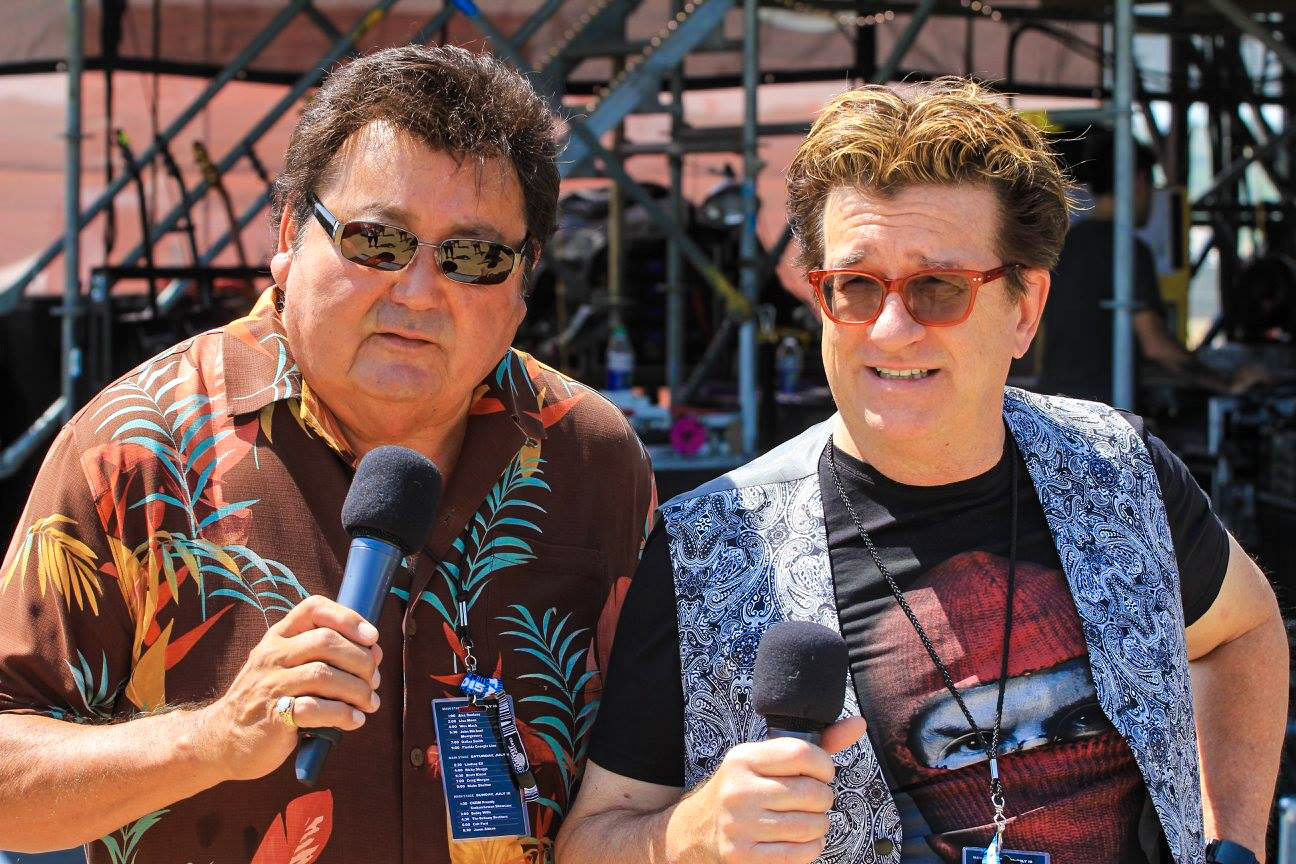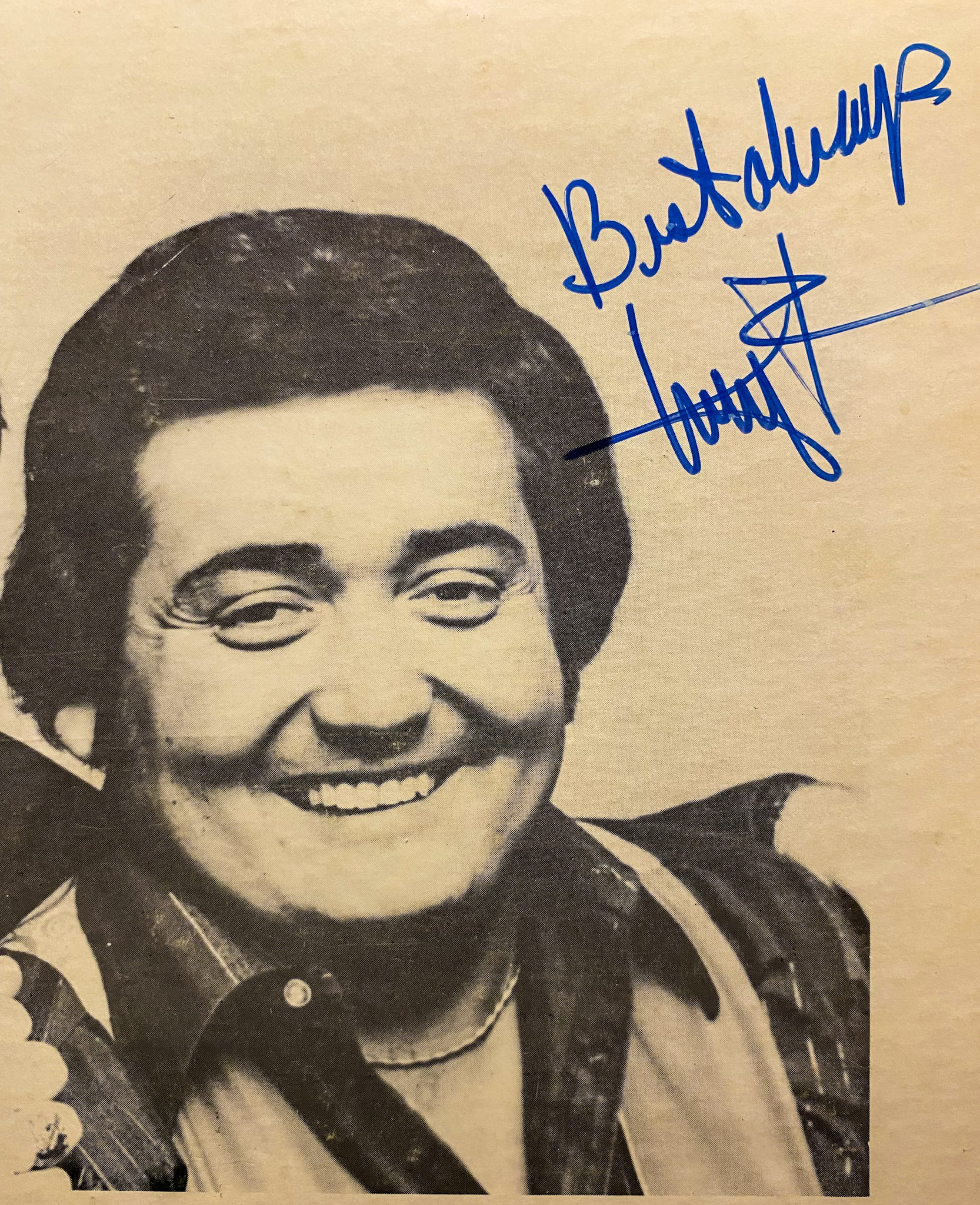
At an early age, a few people taught me the power of a quick wit — how it can defuse a situation, help assert oneself, or unite an otherwise divided room. Terry Ree and Bruce Williams were two of those comedic professors.
Known best as “The Indian and the White Guy,” Williams & Ree were a musical comedy duo formed at Black Hills State University in 1968. They performed consistently for 56 years across two countries at venues from now-defunct ballrooms in small-town South Dakota to gigantic country music festivals. Given the lightning speed of zingers they flung at each other — as well as every ethnic group available — it is especially painful to now put the word “late” in front of Ree’s name.
Terry Ree, a member of the Crow Creek Sioux Tribe, died December 21 at the age of 75. His passing leaves his performance partner Bruce Williams without a straight man, and a half-century’s worth of fans without a South Dakota legend that understood the power of fighting prejudice with exaggeration.
Ree was born in Huron and raised in Pierre before heading to college in Spearfish. With a self-proclaimed major in “Registration,” he met a Scandinavian from Idaho named Bruce Williams during their freshman year. The mutual talent at both music and tomfoolery led the pair to run for student government. Their platform was thin, but their campaign plan to perform songs in the women’s dormitories led them to victory — Ree as president, Williams as vice. So was set the hierarchy and dynamics that would serve as a career for more than half a century.
With a smooth tenor voice that could seamlessly launch into Indigenous song, Ree was the straight man to Williams’ unpredictable zaniness. It was a natural dynamic easily amplified for the stage. After interviewing the duo in 1974, a reporter wrote that Ree was “serious, likable and prone to talk about the future, while his partner interrupts with remarks that keep the conversation permanently off track.”
The act forged in South Dakota’s Black Hills became one where Native and white people could laugh at each other until they laughed with each other, giving bigotry a metaphorical black eye by punching everyone — especially each other. But any ethnic group and belief system was on the table. Local South Dakota performances led to shows in the Las Vegas area and, eventually, The Comedy Store in Los Angeles in the 1970s. They took the stage with peers Robin Williams and David Letterman. After a performance, Richard Pryor approached the pair and said, “I don’t know what it is, but you got it.”
Jimmie Walker, best known as J.J. (“DYN-O-MITE!”) from the hit ’70s hit sitcom “Good Times,” took a shine to the pair and connected them with his managers. But the savage world of entertainment combined with some bad luck — they were to guest star on a new sitcom led by “M.A.S.H” star McLean Stevenson before it got axed after only a few episodes — and they never got the break they wanted. Managers would introduce them to L.A. executives as an Indian and a funny guy, said Williams in 1978. “They look at me and say, ‘So you’re the Indian. What are you doing with a Hawaiian?’”
GET THE MORNING HEADLINES.
The West Coast execs may not have understood, but an ever-growing number of fans got it. Ree’s voice was often compared to early Wayne Newton, but his comedy influences came from the likes of Jack Benny and Bob Hope. Smooth songs were sprinkled through goofball bits, some of which “make Don Rickles sound like a Sunday school teacher on a picnic,” according to one critic. When Williams would admit he didn’t know the difference between a shower curtain and toilet paper, Ree would exclaim “So YOU’RE the one!”
They could viciously insult each other before easily transitioning into their version of 1959’s “Running Bear” or perhaps their most popular original tune, “The Ding Dong Song,” a tale of a distracted truck driver with a snack cake who died “with his Ding Dong in his hand.” Onstage, Ree was a master of staying stone-faced until his stage temper blew at his partner’s shenanigans. But even during the “serious” moments, a smirk would sometimes appear, often transforming into a full smile. Because those two were clearly having a good time making fun of everyone, including themselves. Ree himself once cracked, “If I get embarrassed, who’ll know if I turn red?”
The pair performed consistently in the U.S. and Canada for half a century, appealing to every race and creed while often touring with country superstars like Kenny Rogers, the Oak Ridge Boys, Reba McEntire and Merle Haggard. They appeared on “Hee Haw” and hosted a dessert segment for years on “Country Kitchen” with Florence Henderson. They released records, home videos and two movies. No matter the medium, Williams & Ree had a knack for bridging division with humor and charm. As the two often espoused onstage — partially as a cooling mechanism for potentially offended parties — “we are all the same.”
“Indians have a great sense of humor,” Ree once said. “We pretty much had to have that or we wouldn’t be here.”
Politicians were often in the comedic crosshairs, but Williams & Ree stayed popular across party lines. They played Democratic Party benefits and fundraisers, but that didn’t stop South Dakota Republican Gov. George Mickelson from declaring July 11 “Williams and Ree Day” in 1987. When a contract dispute arose with the South Dakota State Fair in 1983, the Republican and notoriously spiky Gov. Bill Janklow stepped in to help — even after the pair quipped he “asked us not to do any political jokes because South Dakota elected one.”
The duo mostly avoided controversy despite their hyper-focus on ethnic humor, but not everyone got the joke. They caught flack in 2018 when an Indigenous group took offense at a comedy bit. But most of the time people perceived their barbs as intended. “We try to shoot rubber arrows,” Ree once said. “We’ll sting them, but we won’t hurt them.”
It could be argued that Williams & Ree were in the wrong time: too late for Vaudeville but too early for today’s TikTok generation. Either way, Ree’s passing has South Dakota and beyond feeling a little less funny. Fans are left with the songs, jokes and a perpetual wonder about what a Williams & Ree theme park might have been like. (It seriously almost happened in the ’90s.) With his goofball partner, Ree weaponized wit in a quest to show how we’re all just humans that want to chuckle. It’s a lesson more powerful today than ever.
“We do humor and people laugh,” Ree once said. “Well, most of the people laugh.” For those of us exhausted at the current state of division in the world, Ree’s passing has left us all wishing we could have just one more chuckle.
This story originally appeared on South Dakota Searchlight on January 10, 2025. It is published under a Creative Commons license (CC BY-ND 4.0).
South Dakota Searchlight is part of States Newsroom, a nonprofit news network supported by grants and a coalition of donors as a 501c(3) public charity. South Dakota Searchlight maintains editorial independence. Contact Editor Seth Tupper for questions: info@southdakotasearchlight.com.
Chuck Hoskin: Cherokee Nation celebrates Cherokee women
Native America Calling: Tribal rights, a new restaurant and more are on The Menu
Native America Calling: Tribes vie for better access to traditional plants
Senate committee schedules confirmation hearing for Interior nominee
Fact Sheet: Department of Health and Human Services to undergo ‘dramatic restructuring’
Press Release: Department of Health and Human Services to undergo ‘dramatic restructuring’
Native America Calling: The new Social Security reality for Native elders
Montana Free Press: Hip-hop artist Foreshadow celebrates latest release
Cronkite News: Bill creates alert system for missing and murdered relatives
Bureau of Indian Affairs approves HEARTH Act regulations for Mohegan Tribe
House Subcommittee on Indian and Insular Affairs sets field hearing for self-determination anniversary
Native America Calling: Sometimes, COVID doesn’t go away
Native America Calling: The changing landscape for subsistence hunting and fishing
Press Release: AIHEC ‘deeply concerned’ about closure of Department of Education
More Headlines
